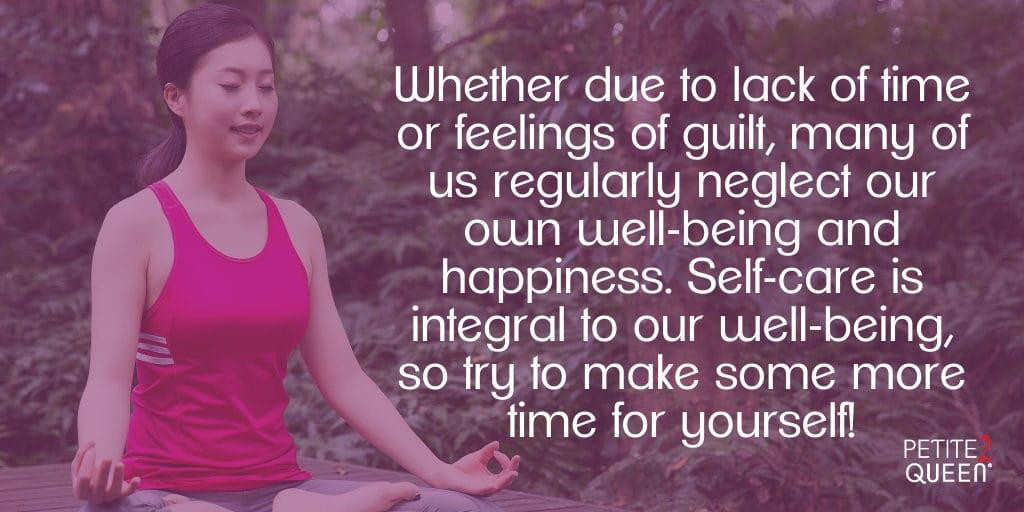While the concept of self-care has become somewhat trendy recently, taking an active role in one’s own health is easier said than done. Self-care is often missing from people’s busy lives. Whether due to lack of time or feelings of guilt, many of us regularly neglect our own well-being and happiness. Fortunately, some of the most effective self-care strategies (including those that utilize technology) are also the easiest to undertake! Here are some essential and often overlooked self-care methods that can completely transform your mental health and well-being.
Find More Time for Sleep
Sleep goes hand in hand with restorative rest. During sleep, our brains sift through our memories to forget things that aren’t important and strengthen the connections we develop throughout the day. Our brains also take the opportunity to flush out toxins that accumulate during our waking hours. When we don’t get enough sleep, however, our brains have trouble making new connections, causing problems with focus, critical thinking, reaction times, and decision making. Too little sleep can even hurt your mood!
While it may be easy to get your eight hours while you’re on vacation, it’s significantly harder to get enough sleep when you’re bogged down by work and life responsibilities. EffiFit recommends practicing time management all day long, not just while you’re at work. You’ll likely discover certain time-wasters throughout your day that are cutting into your sleep hours. It’s also a good idea to create a sleep routine to encourage you to shut down any distracting activities — like squeezing in work or scrolling on social media — and let your body know it’s time to unwind. Meditation, too, can be very helpful in getting a good night’s rest; try some meditation exercises here. You can even check out some sleep-improving apps.

Exercise Any Way You Like
Once you start getting more sleep, you’ll quickly notice your daily energy levels improving. This is a great time to start exercising. While exercise has a plethora of physical health benefits, it also plays a crucial role in our mental well-being. A host of studies suggest that exercising may be one of the best ways to protect yourself from mood disorders. For example, one recent study found that engaging in regular exercise protected participants from developing depression in the future. This effect occurred for exercise at any intensity. So, try to find a form of exercise you enjoy and make it a habit!
Of course, it can feel impossible to exercise if you’re already struggling with depression. To keep yourself motivated, consider investing in a fitness tracker. A fitness tracker such as an Apple Watch or Fitbit can help track your progress and may even increase accountability. If you’re interested in the latest models, the newest release from Apple, the Apple Watch Series 5, offers fast performance and a bright display screen. Meanwhile, the Fitbit Versa can track your activity and has up to four days of battery life.
Say “No” to Overworking
It’s no secret that Americans are tragically overworked. The vast majority of people work over 40 hours per week and rarely have free time to relax. Many people have simply accepted chronic stress as a normal part of their busy lives. However, being constantly stressed has an immensely damaging effect on your body and mind, contributing to a mess of disorders, from heart disease and diabetes to anxiety and depression.

Take More Vacations
It’s clear that we need to spend more time relaxing. This is why vacations are not a luxury, but an essential part of any self-care lifestyle. Vacations effectively reduce job stress, boost our productivity, and provide several physical health benefits as well. Taking a few days off can even help us break disruptive sleep habits and reset poor sleep patterns. Getting away for a little while will allow you to relax, kick back, and pretend you’re away from the rest of the world.
Take Care of Your Gut
It’s official: You need to pay attention to your diet, especially when it comes to your mental health. So, start by eliminating highly processed foods, which have been shown to have an effect on our mental and emotional well-being. Additionally, you need to make sure you’re taking care of your gut, which has surprising connections to our moods, energy levels, and overall health. Read up on your gut flora, and understand how different bacteria work within your biome (akkermansia, for example, can help stabilize your metabolism). So, look for ways to strike a healthy balance in your gut by paying attention to your diet and adding supplements if needed. You can also take advantage of an app that can track your gut health.
We have a lot more control over our mental health than we tend to think. Too often, we let the actions of others influence how we feel on the inside. Fortunately, it’s our own actions that can protect us from common mental health problems. Self-care is integral to our well-being, so try to make some more time for yourself!

Brad Krause created SelfCaring.info after years spent putting his own self-care on the back burner. His goal now is to educate people on the importance of self-care by providing tips and tricks that are easy to implement.

